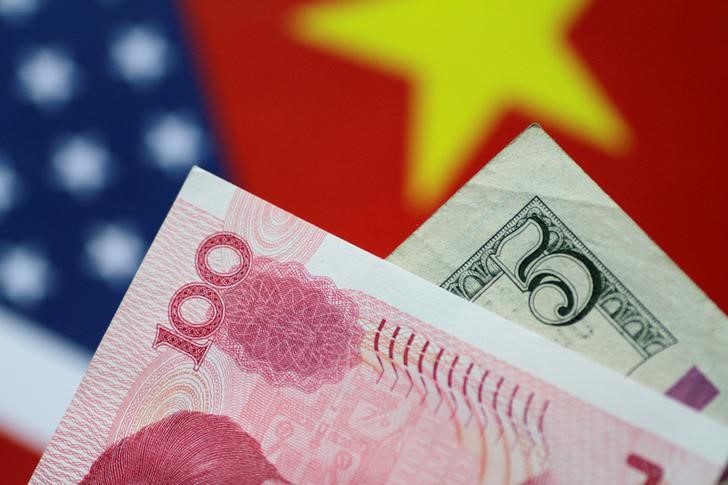Asian Currencies Gain Ground as Dollar Retreats
Asian Currencies Advance Slightly on Thursday
On Thursday, most Asian currencies saw a slight advancement as the dollar and Treasury yields pulled away from recent peaks. Despite this positive movement, persistent signs of deflation in China kept sentiment subdued.
Markets Await More Cues on U.S. Interest Rates
Markets are now awaiting more cues on U.S. interest rates after largely dialing back expectations for early rate cuts by the Federal Reserve, following a string of robust economic readings and hawkish comments from Fed officials.
Curbing the Dollar Rally
This trend largely curbed a rally in the dollar, with the greenback pulling back further from a three-month high hit earlier this week. U.S. Treasury yields also retreated from recent highs.
Asian Currencies Creep Higher
Most Asian currencies crept higher, with the Thai baht among the better performers for the day, rising 0.1% and extending gains from earlier this week after the Bank of Thailand warned that it could still hike interest rates in the face of sticky inflation.
Uncertainty Over Bank of Japan’s Policy
The Japanese yen fell 0.1% and remained in sight of a two-month low, amid persistent uncertainty over when the Bank of Japan will begin scaling back its ultra-loose policy.
Yuan Weak as Chinese Inflation Data Underwhelms
The Chinese yuan moved little on Thursday, amid continued support from the People’s Bank of China, which was seen intervening in currency markets earlier this month. However, the yuan weakened past the 7.2 level against the dollar and remained close to a 2-1/2 month low.
Official data showed that Chinese inflation grew less than expected in January, while producer prices contracted for a sixteenth consecutive month.
The Indian rupee firmed 0.1%, moving further away from near record-low levels as traders awaited a RBI meeting later in the day. The RBI is widely expected to keep rates on hold, while its forecasts on inflation and economic growth will be in close focus.
Overall, the gains in Asian units were largely held back by concerns over higher-for-longer U.S. interest rates, as a chorus of Fed officials warned this week that the bank was not considering any monetary loosening in the near-term.
Signs of persistent economic weakness in China also dented sentiment towards the region, as Asia’s largest economy continued to grapple with disinflation.



